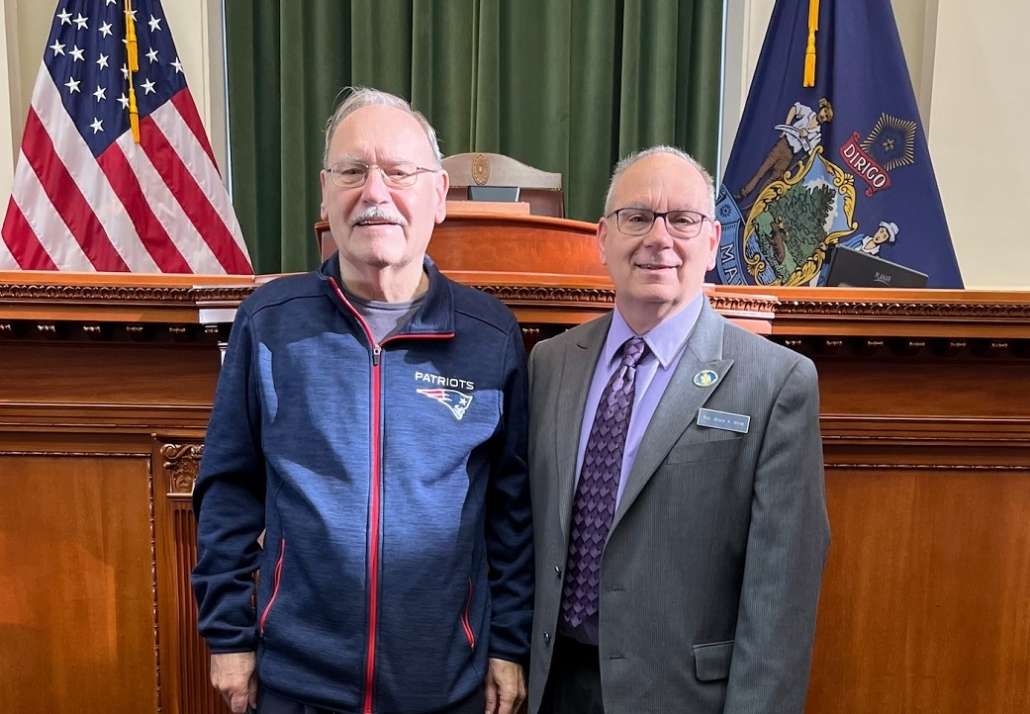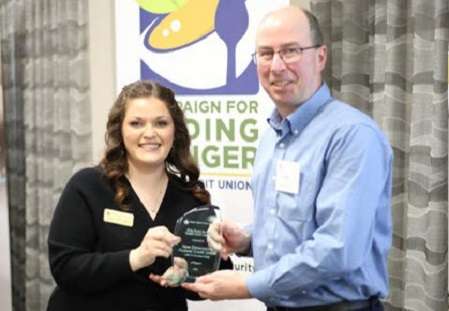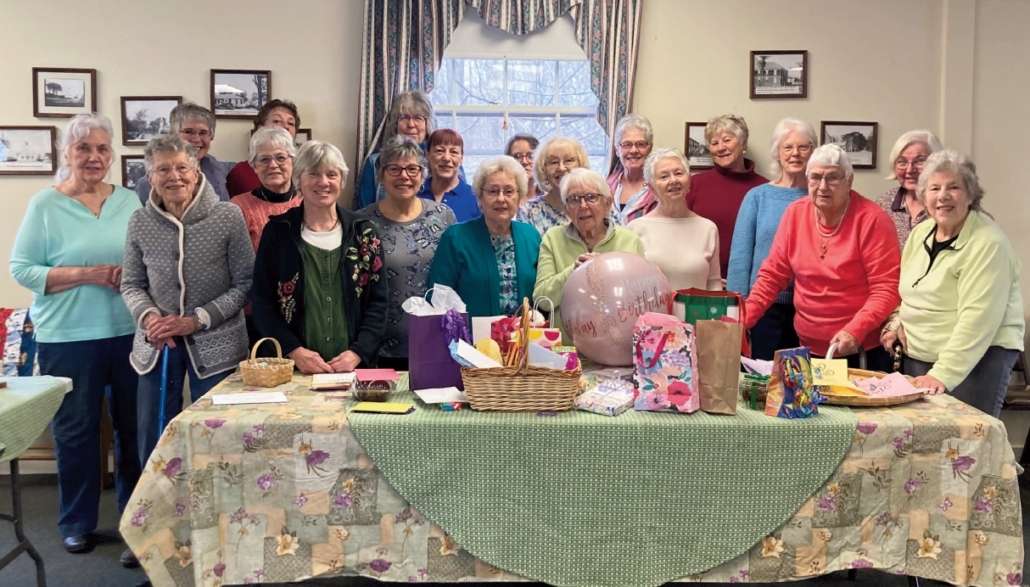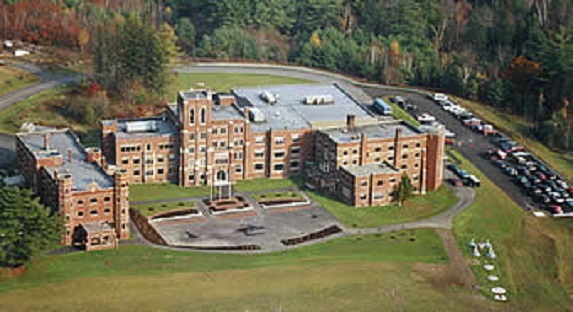
MaineGeneral Orthopaedics surgical podiatrists Michael Kipp, DPM, left, and Brian Loring, DPM. (contributed photo)
by John D. Begin
As a high school soccer player, Michael Kipp had foot and ankle injuries that required appointments with a podiatrist to treat his issues. At the time, he could not appreciate that the appointments would plant the seed for a decade-plus career as a podiatric surgeon.
“As a college undergrad, I knew I wanted to go into health care, so I spent a summer shadowing the podiatrist I met in high school, and the rest is history,” he said. “I liked that patients would see him and, in many cases, leave feeling better instantly.”
Kipp earned a doctorate degree in podiatric medicine from Temple University School of Podiatric Medicine in Philadelphia, PA in 2010. After completing his residency in podiatric medicine and surgery at New York-Presbyterian Brooklyn Methodist Hospital in Brooklyn, NY in 2013, he moved to Maine to work in private practice until he joined MaineGeneral Orthopaedics and its podiatry team in September 2022.
He and fellow podiatrist Brian Loring, DPM, offer a range of surgical interventions including ankle arthroscopy, Charcot foot reconstruction, bunion and hammertoe correction, ankle fusion and minimally invasive foot and ankle surgery. The surgical podiatric care team is supported by Doug O’Heir, DPM, Renee Slaney, FNP-C, and Certified Foot Care Specialist Lori Melancon, RN. The team also offers general foot care services at MaineGeneral Orthopaedics’ practice sites in Augusta and Oakland.
Got foot pain? They can help!
Kipp and Loring will offer a free event on April 11 to discuss non-surgical and minimally invasive surgical treatments that MaineGeneral Orthopaedics offers to treat foot and ankle conditions and the pain or limitations associated with them. They also will answer questions from those attending.
The 5:30 – 6:30 p.m. session will be held in Conference Rooms 1 & 2 at the Alfond Center for Health, 35 Medical Center Parkway, Augusta. Space is limited so registration is required online at www.mainegeneral.org/foot-pain, by calling (207) 624-3881 or by emailing joshua.hamel@mainegeneral.org.
The event also will educate community members about the breadth of foot and ankle care their team provides.
“People sometimes mistakenly assume podiatrists only do routine foot care. While cutting toenails or treating corns and calluses are an important part of our job, that’s only one small part of what we can offer to patients,” Kipp said. “Because we are residency trained in surgical podiatry, we can do so much more.”
Making a difference in patients’ lives
Loring is the newest member of MaineGeneral Orthopaedics’ podiatry team, having joined the practice in July 2023 after completing his podiatric surgery residency at Geisinger Community Medical Center in Scranton, PA. Before that, he earned a doctorate degree in podiatric medicine from Des Moines University in Des Moines, IA in 2020. He likes that his work can help improve a patient’s quality of life.
“Some patients come for their first appointment and, within that appointment, I can greatly reduce or eliminate their pain,” he said. “It’s great to be able to change their day and, sometimes, their life.”
Dr. Kipp agrees.
“Where else can you say that someone came in feeling miserable and later walked out the door, thanking you and saying, ‘I actually feel better already,’” he said.
Loring also enjoys the challenge of finding the cause of a patient’s medical issue and then offering treatment options for it.
“One of my favorite things to do in my free time is work on my car,” he said. “There are similarities between mechanical work and working with the foot and the ankle. You have parts that may not be functioning properly and my job is figuring out what’s wrong with the anatomy and then fixing the problem.”
Loring and Kipp appreciate being part of a comprehensive team at MaineGeneral Orthopaedics, both for what it offers them professionally and what it means for patients with more than one issue.
“There’s really a multidisciplinary approach to care at MaineGeneral,” Loring said, “so if I have a patient who comes in for foot pain and they mention they also have back problems, I can quickly refer them to where they need to be seen.”
“We’re part of a greater practice that offers orthopaedic care from head to toe, with highly skilled clinicians available to treat the whole patient,” Kipp added. “It’s great to work with people you trust and would encourage a family member to see.”
To learn more about the full range of care that MaineGeneral Orthopaedics provides, visit www.mainegeneral.org/orthopaedics.
John D. Begin is a communications specialist in MaineGeneral Health’s Marketing and Communications Department.








 Because ice went out on China Lake on a record date of March 11, 2024, the contest officially ended on that day.
Because ice went out on China Lake on a record date of March 11, 2024, the contest officially ended on that day.

